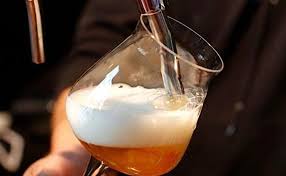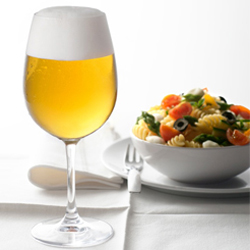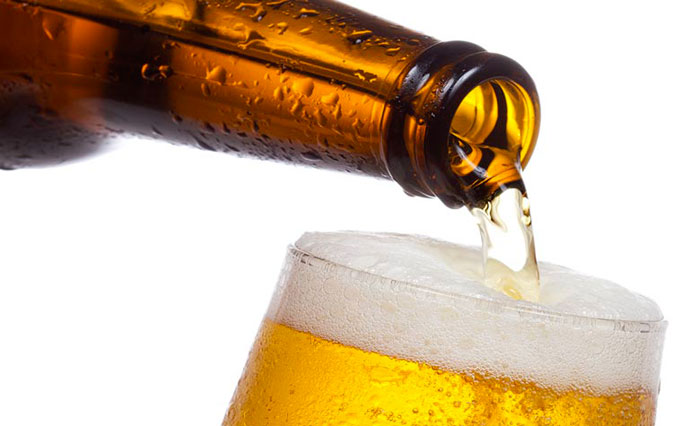 Un girovita eccessivo è spesso associato a grandi bevute di birra. Uno studio danese ha voluto vederci chiaro.
Un girovita eccessivo è spesso associato a grandi bevute di birra. Uno studio danese ha voluto vederci chiaro.
E’ vero che chi beve molta birra deve fare i conti con la pancia cioè con il grasso che si accumula a livello addominale? A questa domanda hanno provato a rispondere i ricercatori dell’Università di Copenaghen con una revisione sistematica degli articoli scientifici pubblicati sulle possibile relazioni tra consumo di birra e obesità. Gli studiosi hanno utilizzato sia l’indice di massa corporea che la misurazione della circonferenza vita, considerata quest’ultima un indicatore affidabile dell’accumulo di grasso addominale. Sono stati revisionati 35 studi di tipo osservazionale condotti su un campione di oltre 600mila persone e 12 studi di intervento che hanno coinvolto circa 500 persone. Globalmente, la maggior parte degli studi di tipo osservazionale non ha mostrato nessuna chiara associazione tra il consumo moderato di birra e l’accumulo di grasso addominale negli uomini. Tuttavia, gli uomini che consumavano più di 4 litri di birra a settimana, mostravano un girovita decisamente più ampio rispetto agli altri. Per le donne invece non è stato possibile trarre alcuna conclusione, poiché esse difficilmente arrivano a consumare quantità esagerate di birra. In conclusione, un elevato accumulo di grasso addominale, è più verosimilmente causato da uno stile di vita scorretto (dieta poco equilibrata, binge drinking, poca attività fisica) che molto spesso si associa ad un uso sconsiderato di alcolici, e quindi anche di birra. Al momento, i dati disponibili sembrano suggerire che la birra, se consumata regolarmente e con moderazione, non ha alcun effetto sull’aumento di grasso addominale.
Fonte:
Bendsen NT, Christensen R, Bartels EM, Kok FJ, Sierksma A, Raben A, Astrup A. Is beer consumption related to measures of abdominal and general obesity? Nutrition Reviews. 2012
Insufficient evidence for the beer belly
There is a wide-¬?spread belief that drinking beer causes a fat belly, a phenomenon popularly referred to as the beer belly. But there is insufficient scientific evidence to evaluate whether or not beer is really responsible for a fat belly. This is the conclusion of new research from the University of Copenhagen, published this month in the scientific journal Nutrition Reviews.
The researchers conducted a systematic review and meta-¬?analysis. They retrieved all scientific studies with data on beer consumption and obesity to assess whether or not the available scientific evidence supports the belief that beer drinking is responsible for deposition of body fat. A distinction was made between general obesity (body weight or BMI – body mass index) and abdominal obesity (waist circumference or waist-¬?to-¬?hip ratio), meaning that fat is stored mainly in the belly. A total of 35 observational (population-¬?based; around 620,000 subjects) and 12 intervention (experimental; around 500 subjects) studies were examined.
Men versus women
For men, in most observational studies, no or a positive association between beer consumption and both abdominal and general obesity was found. A number of studies showed that consumption of more than 4 litres of beer per week may be linked with a bigger belly, whereas moderate consumption did not appear to be associated with belly size. For women it was difficult to draw a conclusion, because beer intake in women was generally low.
Difficult conclusion
Nathalie Tommerup Bendsen, University of Copenhagen: “Only few of the retrieved studies were designed to assess the relationship between beer consumption and obesity; results were inconsistently presented across studies; and most intervention studies were of low quality. Furthermore, there are many confounding factors, which may not be adequately addressed in the individual studies. People preferring beer differ from non-¬?drinkers or wine consumers with regards to multiple lifestyle factors that are related to obesity. For example, beer drinkers are known to have a less healthy diet, are more often smokers and are less active.”
Follow-¬up study
In order to examine whether or not the diet of a beer drinker is important in getting a fat belly, this year, a new research has started on eating patterns and nutrient intakes of beer drinkers compared to drinkers of other (non-¬?) alcoholic beverages. The question remains if we can keep calling a fat belly a beer belly.
Source: Bendsen NT, Christensen R, Bartels EM, Kok FJ, Sierksma A, Raben A, Astrup A. Is beer consumption related to measures of abdominal and general obesity? Nutrition Reviews. 2012. DOI: 10.1111/j.1753-¬? 4887.2012.00548.x.
The Dutch Beer Institute provided financial support for the execution of this review.
For information (not for publication)
Dr. Nathalie Tommerup Bendsen
University of Copenhagen



